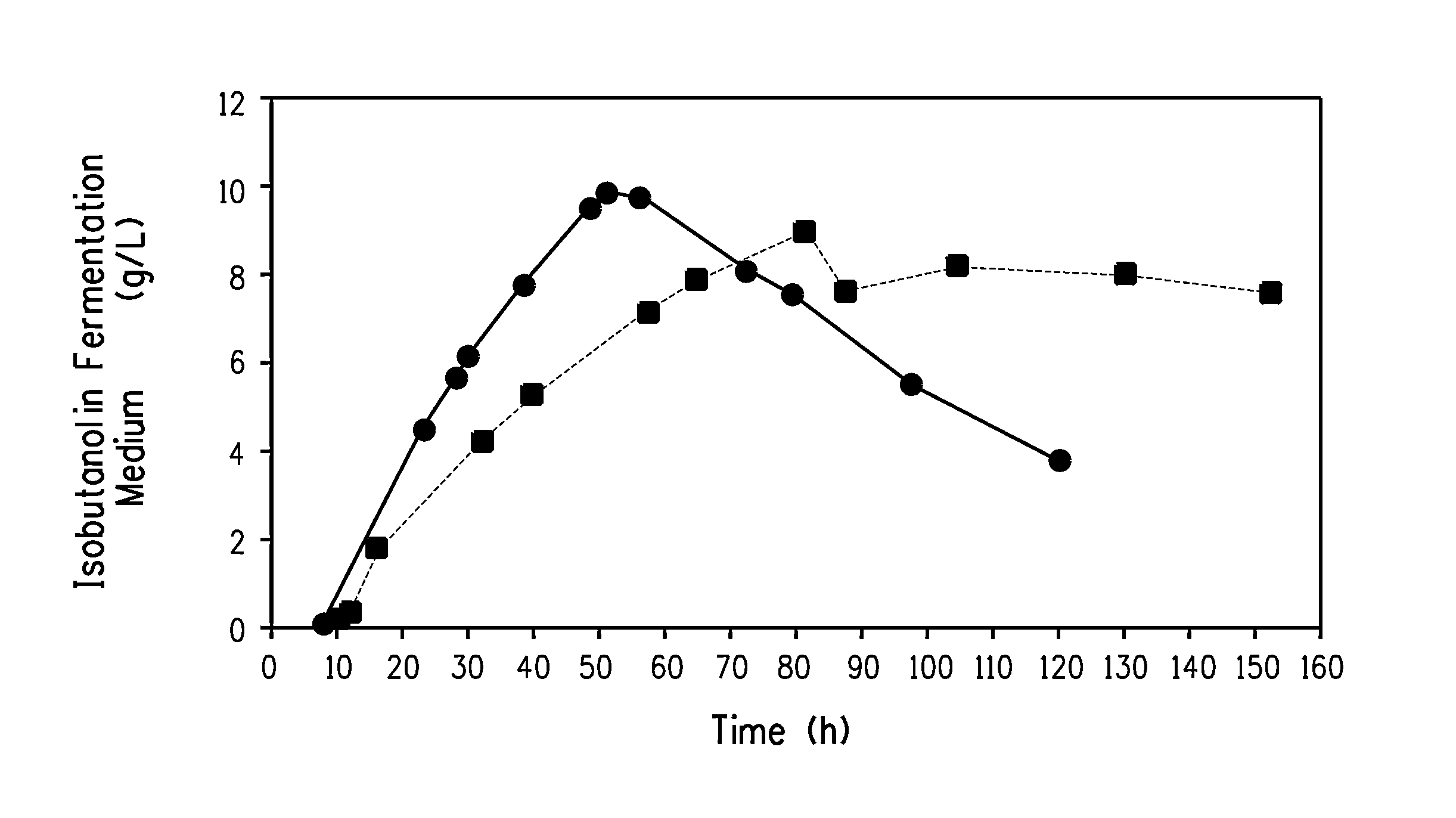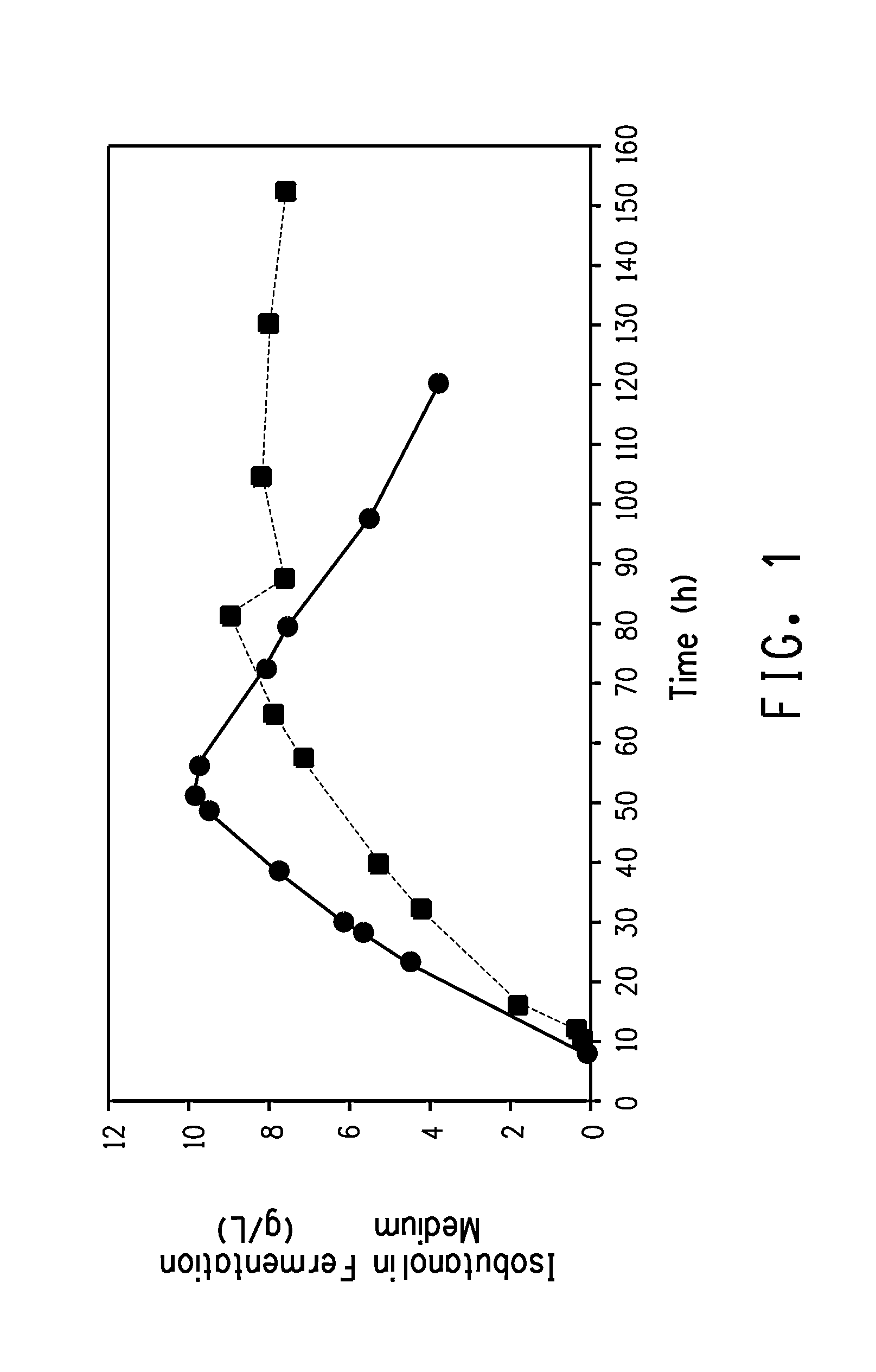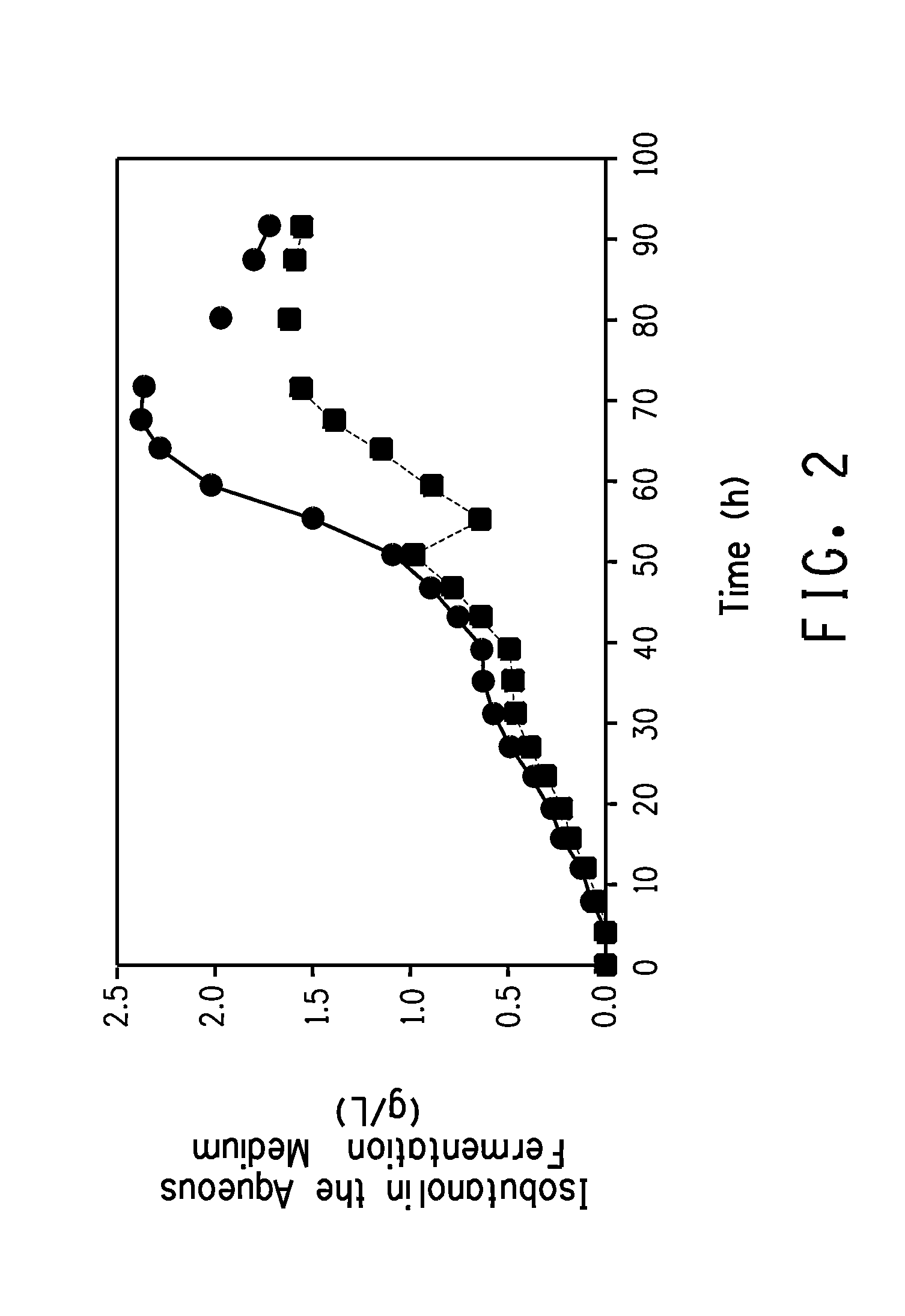Method for producing butanol using two-phase extractive fermentation
a two-phase extractive fermentation and butanol technology, applied in the field of biofuels, can solve the problems of limited 1-butanol production by the abe process, limited butanol toxicity thresholds, and high cost of butanol production methods
- Summary
- Abstract
- Description
- Claims
- Application Information
AI Technical Summary
Benefits of technology
Problems solved by technology
Method used
Image
Examples
example 1
Screening of Solvents
[0239]The purpose of this Example was to screen various organic solvents for use in the extractive fermentation of butanols. Solvent characteristics that were investigated were the partitioning of isobutanol between the solvent and an aqueous phase, the emulsion forming tendency of the solvent in the two-phase system, and the biocompatibility of the solvent with a wild-type Saccharomyces cerevisiae strain.
[0240]The partitioning of isobutanol between water and the following solvents: oleic acid (CAS No. 112-80-1), oleyl alcohol (CAS No. 143-28-2), octanoic acid (CAS No. 124-07-2), 1-nonanol (CAS No. 28473-21-4), 1-dodecanol (CAS No. 112-53-8), 1-nonanal (CAS No. 124-19-6), and 1-decanol (CAS No. 112-30-1) was investigated. Isobutanol was added to water to give aqueous solutions having a final isobutanol concentration of 10, 30, 50, and 70 g / L. These aqueous butanol solutions (12 mL) were added to test tubes and 4 mL of the solvent to be tested was added. Each sol...
example 2 and example 3
Comparative
Growth of Saccharomyces cerevisiae in the Presence of Isobutanol and Oleyl Alcohol
[0248]The purpose of these Examples was to demonstrate that oleyl alcohol mitigates the toxicity of isobutanol to Saccharomyces cerevisiae. The glucose consumption rate and the growth rate of wild-type Saccharomyces cerevisiae BY4741 strain were measured in shake flask cultures containing a high concentration of isobutanol in the presence of oleyl alcohol (Example 2) and the absence of oleyl alcohol (Example 3, Comparative).
[0249]Three seed shake flasks containing 600 mL of YPD medium were inoculated with 100, 300, and 1000 μL of Saccharomyces cerevisiae BY4741 inoculum, respectively. The flasks were incubated overnight at 30° C. with shaking at 250 rpm until the OD600 reached about 0.1. Samples were withdrawn from each culture and the OD600 and glucose concentration were measured as described above.
[0250]To a 125 mL flask was added 100 mL of the culture which was derived from the 300 μL ino...
example 4 and example 5
Comparative
Growth of Lactobacillus plantarum in the Presence of Isobutanol and Oleyl Alcohol
[0254]The purpose of these Examples was to demonstrate that oleyl alcohol mitigates the toxicity of isobutanol to Lactobacillus plantarum. The glucose consumption rate and the growth rate of Lactobacillus plantarum strain PN0512 were measured in shake flask cultures containing a high concentration of isobutanol in the presence of oleyl alcohol (Example 4) and the absence of oleyl alcohol (Example 5, Comparative).
[0255]Three seed shake flasks containing 50 mL of de Man-Rogosa-Sharpe (MRS) medium were inoculated with 200, 500, and 1000 μL, respectively, of Lactobacillus plantarum strain PN0512 inoculum (ATCC: PTA-7727, biological deposit made Jul. 12, 2006 for U.S. patent application Ser. No. 11 / 761,497). The flasks were incubated overnight at 30° C. with shaking at 250 rpm until the OD600 was between 2 and 5. A 1-L flask containing 600 mL of MRS medium was inoculated from one of the above seed...
PUM
| Property | Measurement | Unit |
|---|---|---|
| fill time | aaaaa | aaaaa |
| fill time | aaaaa | aaaaa |
| fill time | aaaaa | aaaaa |
Abstract
Description
Claims
Application Information
 Login to View More
Login to View More - R&D
- Intellectual Property
- Life Sciences
- Materials
- Tech Scout
- Unparalleled Data Quality
- Higher Quality Content
- 60% Fewer Hallucinations
Browse by: Latest US Patents, China's latest patents, Technical Efficacy Thesaurus, Application Domain, Technology Topic, Popular Technical Reports.
© 2025 PatSnap. All rights reserved.Legal|Privacy policy|Modern Slavery Act Transparency Statement|Sitemap|About US| Contact US: help@patsnap.com



